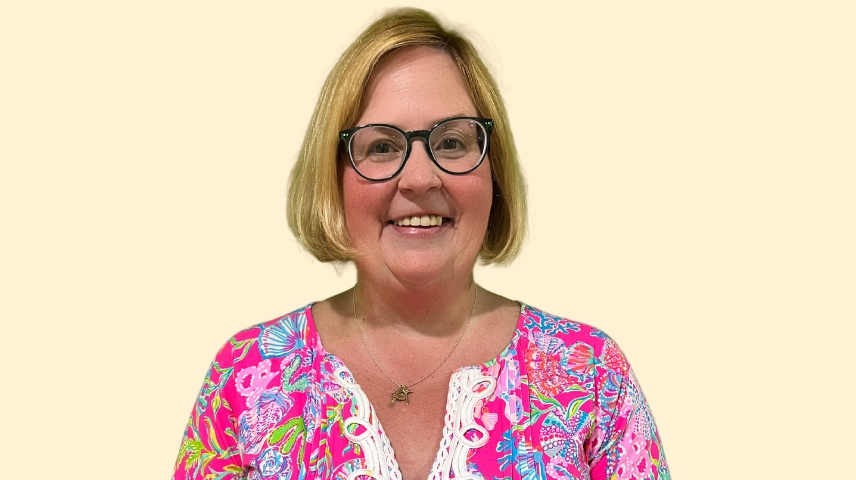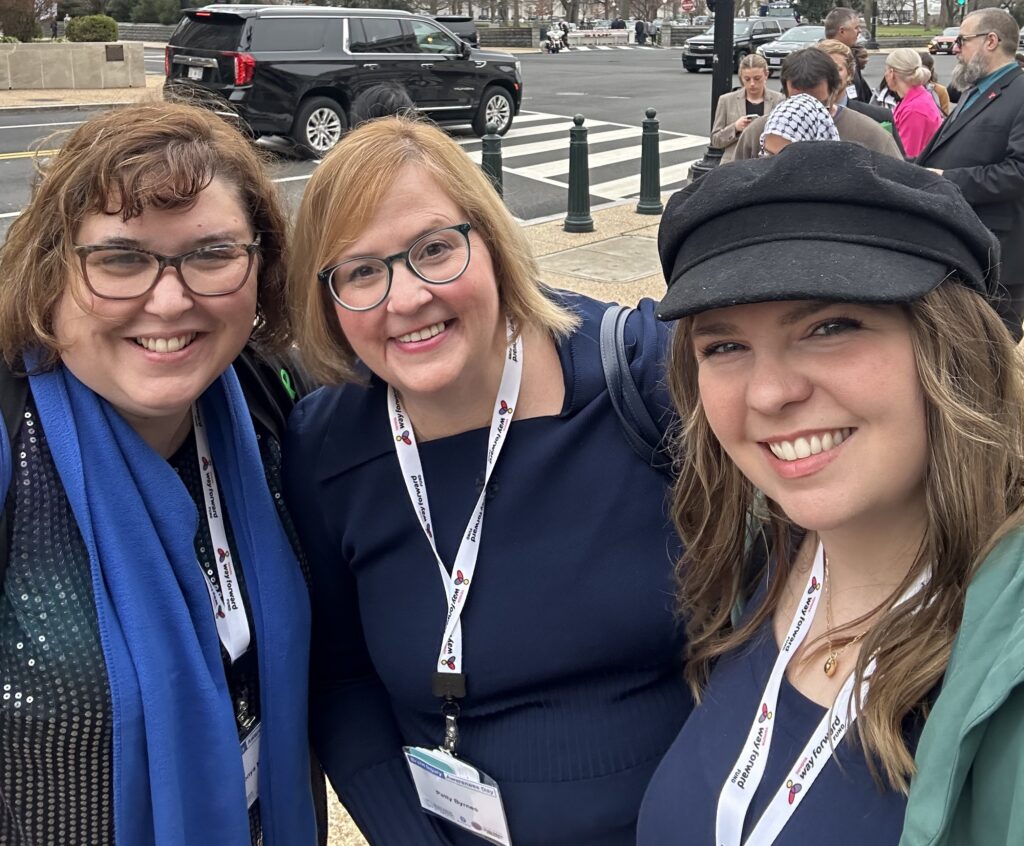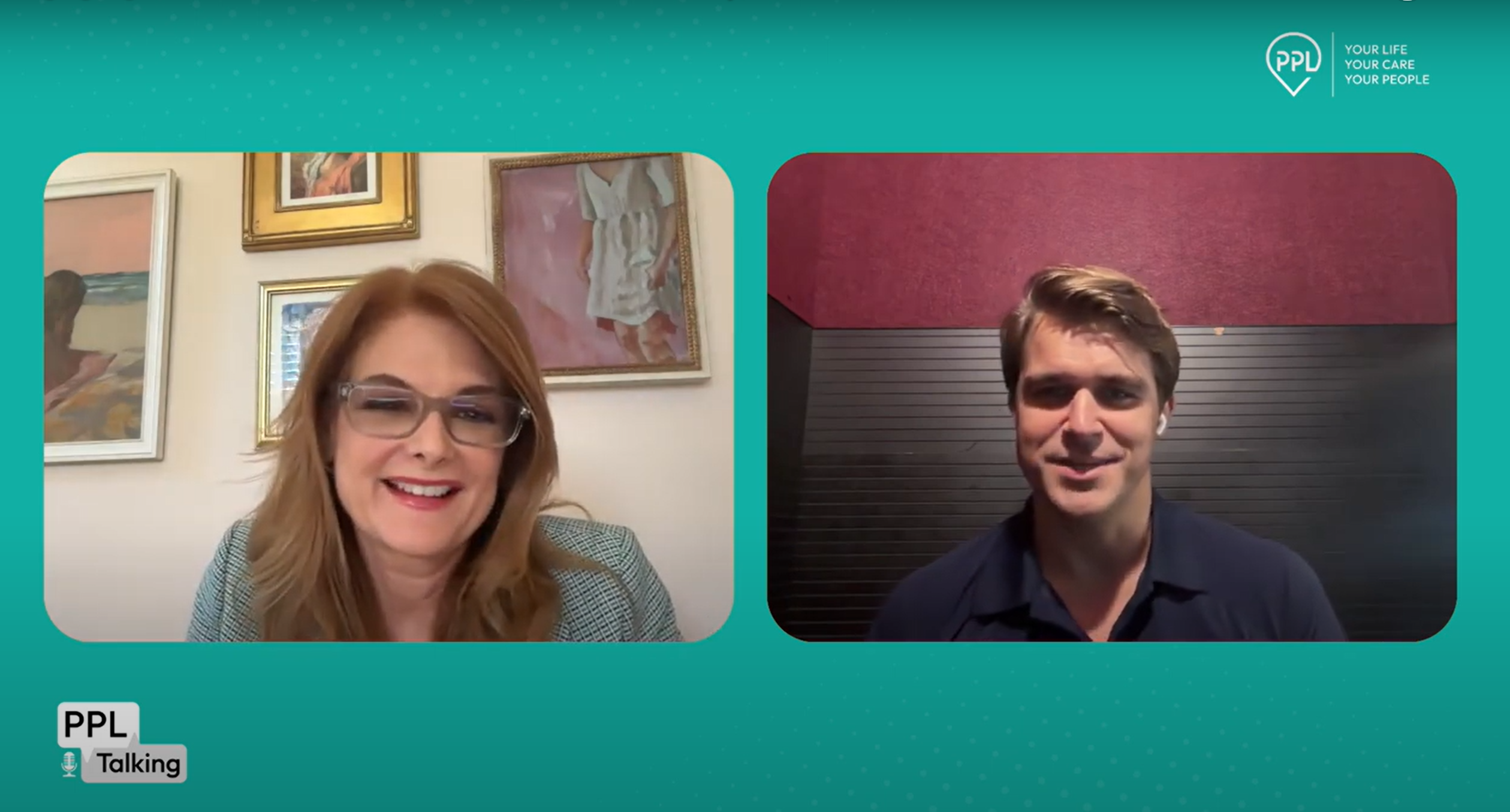Mission-Driven PPL: Patty Byrnes
By PPL on May 17, 2024

One year into her recovery Patty reflects on the realities that many patients face—misdiagnoses, delayed treatments, and a system that even to someone with 20+ years in the healthcare field, can feel like a maze to navigate.
A New Definition of Normal: Patty’s Personal Journey Through TBI Recovery
The month of May is significant to health awareness as it represents Stroke Awareness Month, as well as Brain Injury Awareness Week from May 11 – May 17. These observances provide us with the opportunity to spread awareness by sharing important stories.
The Invisible Illness
Traumatic Brain Injury (TBI) is often called the invisible illness because its symptoms can be concealed or misunderstood. Navigating life after a TBI involves discovering a new normal that few understand unless they’ve walked a similar path. Our VP of Government Relations, Patty Byrnes, understands this journey and shares her experience highlighting the need for deeper understanding and more resources for those affected by serious health challenges.
Life Altering Moments
“Well, at least I was on brand,” Patty recalls humorously about her collapse at a train station, drawing public attention—not intentionally—in a moment that dramatically changed her life. It was a regular day, she was traveling to Washington, D.C. for business when things took an unexpected turn. She had been experiencing symptoms that were misdiagnosed as Vertigo before her traumatic fall.
I collapsed, and I remember falling… I had knocked myself out and had at that point also had a trauma-induced seizure,”
Patty recounts the frightening moment that led to multiple diagnoses. TBIs due to the head trauma caused by the fall, but non-TBIs, as CT Scans and MRIs later that evening revealed a series of strokes caused by an undiagnosed clot in her carotid artery. The distinction between TBI and stroke diagnosis is significant, as it shapes survivors’ paths to recovery and the resources that are available to them.
Navigating Healthcare
Following her stroke, Patty faced many hurdles in accessing the right medical care. “It was just bizarre to me,” she shares, speaking on the struggle to secure appointments with specialists despite the significance of her condition. Her mother, a neurology nurse, became her daughter’s fiercest advocate, helping Patty navigate a healthcare system that seemed unaware of her critical needs.
Day-to-Day Realities and the Role of PPL
Continuing to struggle with balance and eyesight issues, Patty is open about the uncertainty of “full” recovery as she continues to seek answers to what her ‘new normal’ will be. She shares that some of the challenges TBI survivors face are managing day-to-day responsibilities like paying bills and financial management, making programs like the one PPL offers in New York a vital need.
You just sometimes forget to pay bills…that’s what this program is doing in New York, they ensure people have their housing secured, and utilities paid on time, which can be a lifesaver for someone whose daily life becomes a battle against forgetfulness and confusion.”
Mission-Driven Work
Through her role, Patty has discovered a platform to advocate for those with similar stories, driven by a mission to inform and support those unaware of the services available to them. Patty explained that when deciding if she was going to work for PPL, she had a conversation with her occupational therapist who shared that self-directed services through PPL had changed her and her family’s life. This conversation directly influenced Patty’s decision to join PPL and advocate for similar transformations.
Connecting with Resources
Patty stresses the importance of connecting with the right resources—a realization that came after being released from the hospital and not knowing what came next. Through her experience in the world of TBI advocacy, Patty discovered just how important a community that understands what you’re going through is. She recommends the National Association of State Head Injury Administrators www.nashia.org as a great resource.

Future Advocacy
Unfortunately, under current guidelines, there are many limitations in TBI categorization. This results in barriers to the care and help survivors need. Patty is determined to make a real difference – pushing for policy changes that reflect the realities of brain injury survivors. Expanding TBI definitions to include strokes and similar neurological injuries isn’t just about medical accuracy, it’s about ensuring every survivor has access to the necessary resources and information to understand what they’re eligible for.
Learn More
At PPL, it’s our goal to help individuals with the support they need to improve their quality of life, by aiding in building a network that upholds human dignity and fosters resilience. We hope that shedding light on the human side of healthcare and services is just the start.
We are committed to listening and responding to needs with solutions that better the lives of everyone that we serve. Through education, advocacy, and personalized care, we continue to champion the cause of TBI and Stroke Survivors ensuring that we do all we can to help them thrive. Learn more about our services here.



